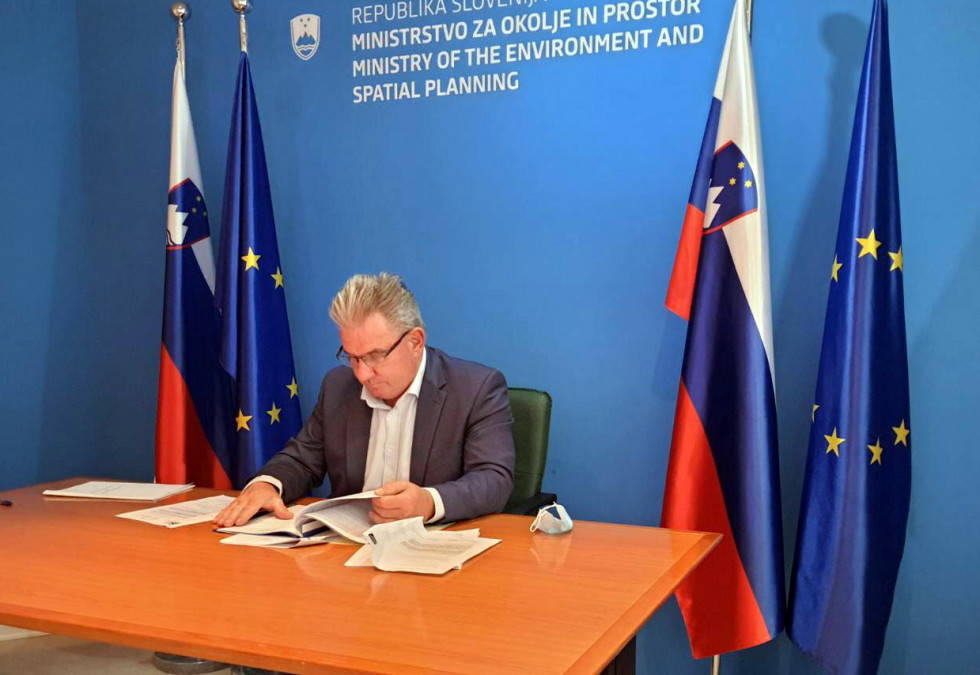Minister Vizjak attends Petersberg Climate Dialogue with other ministers and world leaders
- Ministry of the Environment and Spatial Planning
The discussion focused on the topics of adaptation to climate change, setting the rules for international carbon markets (Article 6 of the Paris Agreement), the financing of climate action, and coordination regarding the timeframe and transparency in reporting emissions. The ministers also considered the main challenges in setting the rules for international carbon markets, i.e. how to stimulate a discussion at COP26 about the goals of climate finance beyond 2025. Furthermore, the ministers agreed that increasing international financing, targeting and integrating aspects of climate change into other international mechanisms were of strategic importance to boosting climate resilience. Achieving the ambitious goals of a zero-carbon society by 2050 requires the participation of all stakeholders.
Article 6 of the Paris Agreement, calling for the definition of rules applying to international carbon markets, is of key importance to the Parties. Minister Vizjak stressed that "clarity concerning environmental integrity, transparency and sustainable development, which have to be the starting point of our negotiations at the COP26 conference, are essential" and that "it is essential to harmonise the timelines for reporting the revised greenhouse gas reduction targets".
Slovenia adopts the Resolution on Long-Term Climate Strategy until 2050
The climate strategy concentrates on the ambitious goal of achieving climate neutrality while offering a number of opportunities for individuals, society and businesses to achieve many simultaneous positive effects, such as reducing environmental impact, preserving nature, reducing energy import dependency, providing new development opportunities on common energy markets, containing costs and energy poverty, creating green jobs, increasing the competitiveness of enterprises, and ensuring a balanced regional development.
The Paris Agreement and the UN Climate Change Conference
Detailed rules on the implementation of the Paris Agreement, which was adopted in December 2015, are set out in the Rulebook that world leaders will strive to finalise at the 26th (COP26) session of the UN Framework Convention on Climate Change (UNFCCC) – the UN Climate Change Conference. After a one year break and the entry into force of the Paris Agreement (on 1 January 2021), this major climate conference will be held between 1 and 12 November 2021 in Glasgow under the Presidency of the United Kingdom in collaboration with Italy.
COP26 will review countries’ climate ambitions and assess the revised nationally determined contributions (NDCs) that the countries were required to send to the UNFCCC Secretariat under the Paris Agreement by the end of 2020. COP26 will also continue negotiations on the definition of rules applying to international carbon markets (Article 6 of the Paris Agreement), thereby finalising the Paris Rulebook.
A collective review of the implementation of the Paris Agreement is expected to begin, as is an assessment of the overall progress in achieving its aims and the realisation of its long-term goals (an overview of the situation at the global level). The realisation of international commitments to increase the financing of climate action will also be reviewed and negotiations will open to determine the new finance goal by 2025.
Another important issue will be adaptation to climate change, where the goal is to strengthen the implementation of measures and policies for increasing resilience to climate change and to secure additional funding for adaptation, particularly in the most vulnerable countries.
More information available at:


